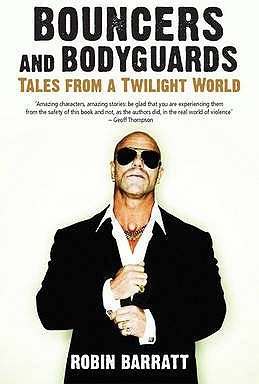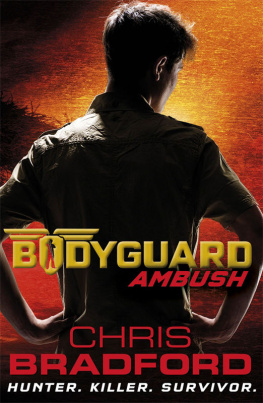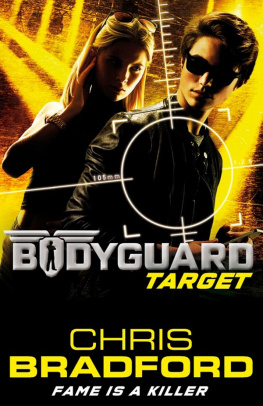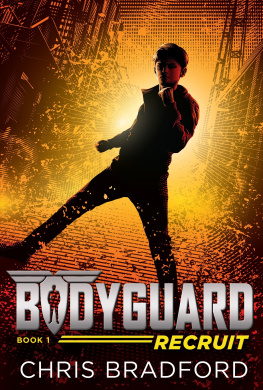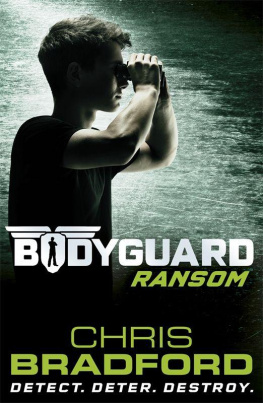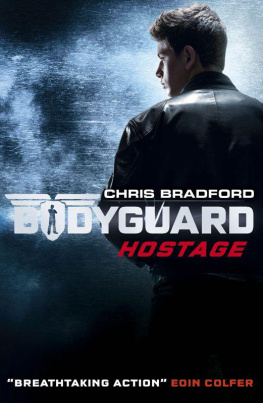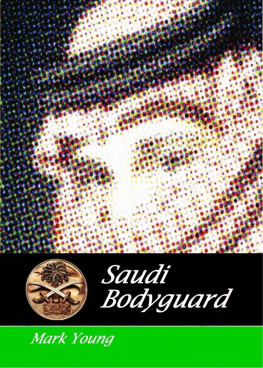
Content
Critical analysis of the Austrian scene from the
experience of the author
or
The incredible events in the life of a
professional detektive
Foreword
The author Gerhard Hradil

Gerhard Hradil, born on 08.26.1964 in Vienna;
a trained chemist (HBLVA for Chem. industrial and leather technology, Rosensteingasse).
Acting under complete military service and three years as a laboratory assistant, working since 1986 at various companies as a detective, bodyguard, security and trainer.
His work included activities such as store detektive, observations, investigations, protection of events (concerts, clubbing, parties, etc.), protection of nightclubs and bars (bouncer), protection of private individuals, businessmen and celebrities from the film and music industry and the training of future security-experts.
Since his childhood (1973) studied various combat-sports. These are most important to his life.
He recognizes in his professional life, that many of these martial arts techniques work only with much effort and then only after years of intense training.
In search of a more effective system, during his professional and personal travel he learned knivefighting-techniques from different cultures (Filipino, Japanese, North American and European) wich impressed him greatly.
After years of training, he combines these techniques into a system which is next to the self defense aspect, also great for the athletic competition. He named this new training system Aikuchi-do, because it is heavily influenced by the Japanese philosophy.
He also changed the technique slightly, so they also work with objects of daily use and not exclusively applicable to the weapon, thus are more tailored to the needs of his professional life.
The system is so simple that it is easy to learn and use.
This Self-Defense is also ideal for women, weak or elderly people, because using a knife or other objects (pens, hand bag, keychain, etc.) the power difference between aggressor and defender is no longer relevant.
In addition, the self-feeling of safety increases to a large extent, merely by knowing the possible use of various aids, who are always within reach.
Just by changing occurrence, the probability of a violent attack is reduced to a minimum, as potential violent offenders more likely look for a harmless, weak victim, as for someone showing confidence.
It is also important that the exercises will train highly skills like: concentration, reaction, timing, coordination, general alertness, quickness, strength, and the "sixth sense".
The so-called "sixth sense" in the martial art's is understood as the ability to anticipate attacks, and to forestall the planned actions of the opponent.
This sixth sense, in conjunction with the right timing, is the reason why in a fight martial-arts-masters are seemingly more relaxed and move slower than their opponents and still anticipate all the actions of the opponent to counter these and defeat him.
The student learn to defend themself with only two attacking-techniques, two defense-techniques and two gripp-techniques. The theory of the universal application of the Aikuchi Do-training-program is the first chapter of this book.
Foreword
Guido Sieverling
Can you write a book if you have never seen his book partner before? In collaboration with Gerhard Hradil, whom I met by chance on the internet, it worked even better than good. Until the book was finished, there were countless emails.
Gerhard, it worked great with you. Thank you for it!
Gerhard sent me all the required documents / images and I designed it to this book now.
I myself was born in 1968. Since 1984 I have trained nine different fighting styles: Boxing, Hapkido, Kobudo, Krav Maga, Ninjutsu, Shaolin Kung Fu, Taekwondo, Ving Tsun Kung Fu and Wing Chun Kung Fu to date.
Obstacles can not stop me;
Determination will bring every obstacle down.
Leonardo da Vinci |
Guido Sieverling
Autor
Stepping-techniques. that give the beginner a good sense of balance and through which they learn to move safely and quickly in all directions.
Kata. Composed as a single movement, attacking 21 targets in the human body from 21 different angles.
Partner-exercises. through which the coordination of feeling, the sense of distance and different movement-approaches are practiced from different angles. In general, with these exercises the beginner become familiar with an opponent and a knife.
Sparring. The main component of the training. This gives students the proper polish. They will learn to apply the exercises described in the previously trained movement sequences directly in athletic competition, which is close to a real fight. This trains in a large extent the reaction, timing, coordination and mental attitude.
Sumo also is practiced, which trains in a large extent the strength, stamina and the feeling for the opponent.
Another unarmed exercise is called 'push-hands'. During this exercise the tactile reactions to an attack is trained, so the students can defend themself blindfully.
In addition, different locks, counter-locks and ground-fighting techniques from professional wrestling are practiced, so the superiority of the students in a fight on the ground is guaranteed.
All of these exercises may have the primary goal that the student overcome his opponent in an emergency, without hand out punches and kicks, and keep it under control.
This aspect contributes primarily to the law of self-defense, because by this procedure, the proportionality of the defense to the attack will always be guaranteed.
Of course this also applies for a security application, as this is not only observed by the law but also by the client, whose protection and reputation has to be maintained (Which would not be guaranteed if the bodyguards constantly would be involved in fights.).
Basic requirements to
become a bodyguard |
Good manners are a basis - the only way you can act calmly and politely, but firmly and respond in any situation (whether Opera-Ball or rocker-pub).
The mastery of foreign languages??is an advantage not to get surprised even by potential assassins in foreign countries speaking foreign language. (One should never show that you understand a language when listening to several strangers).
You should train your sixth sense to recognize dangerous situations in time to avoid if possible or at least to respond correctly - you gain this ability best by regularly martial arts training.
The same applies to the attainment of physical and mental fitness.
A bodyguard must be able to protect clients from physical attacks - so regular martial arts training is required.
Peripheral vision - means to have a greater vantage point. This means that one can already perceive the slightest movement from the corner of his eye and can respond to any threats earlier.
A solid firearms training is needed - not to play for Rambo, but to put yourself in the position of a sniper so you can prevent shooting attacks, through preventive measures, or by correct responses to survive such situations alive.
Also training as a demolitions expert should not be missed - to detect bombs in time (not do disarm them there for there are specialists) and to search for bombs in the right places.
Next page

